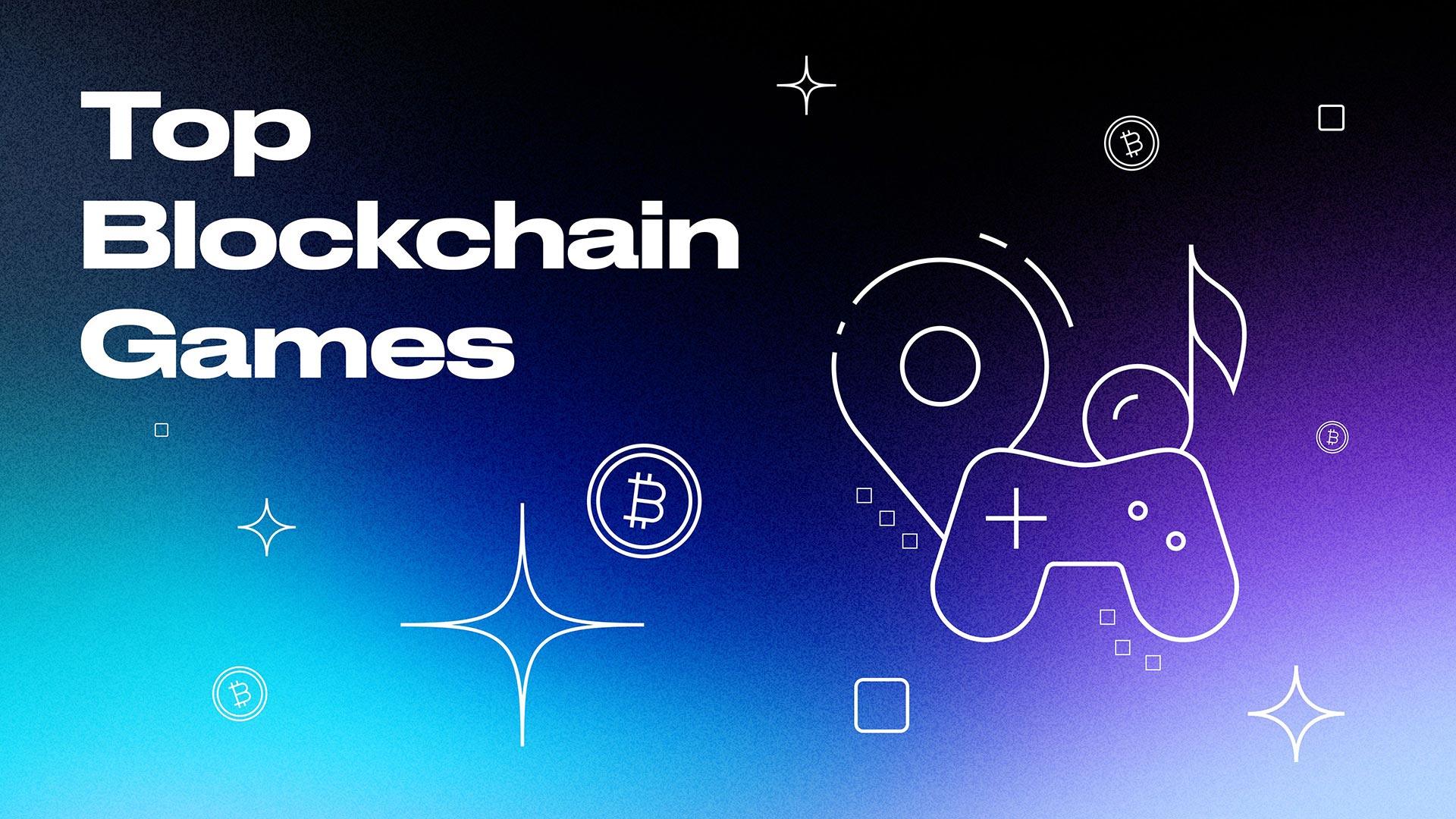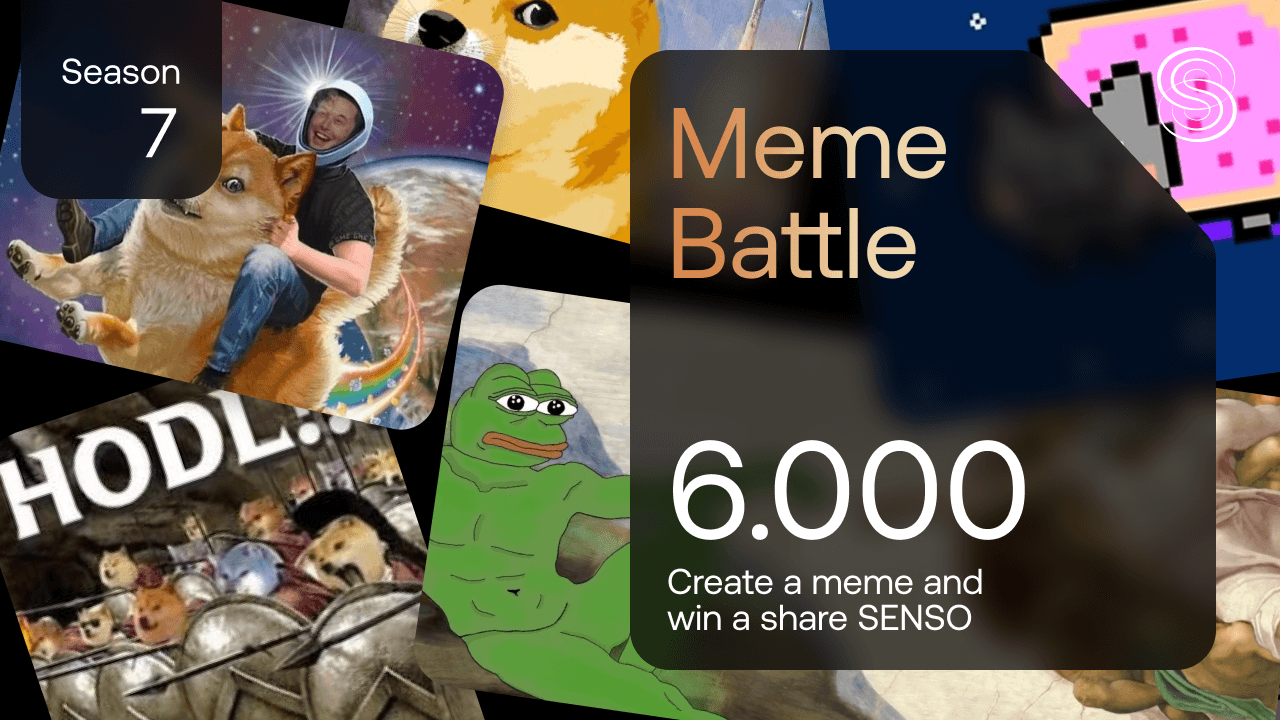Gaming is growing faster than ever before. The gaming industry is currently valued at $173 billion, with very positive indicators showing that it will surpass the $300 billion mark in the next five years. Behind this boom is a recent surge in new players, especially in mobile platforms, which have made gaming a more practical and easily accessible experience for the estimated 2.6 billion gamers worldwide.
But for many, being online just for fun is no longer their primary driver. As the saying goes, time is money and players have certainly taken notice that they're making a big investment in virtual experiences with little return. So they’ve started looking for ways to monetize their hobby. However, beyond the world of eSports, there haven't even been many opportunities for casual players to cash in on the effort they put into gaming - until now.
The rise of blockchain games has turned the tables on the gaming industry by making players, and not developers, the main financial decision-makers.Play-to-earn (P2E) crypto gaming is a trend that shouldn't be overlooked. But before we get into the details, it's worth understanding how it all works.
What are blockchain games?
Blockchain is a form of ledger technology that functions as a recording and storing system for information and it can’t be hacked, tampered with or otherwise altered. A network's transaction history is, in principle, publicly available. Blockchain powers cryptocurrencies, like Bitcoin and Ethereum, opening a world of possibilities across virtual economies - and game developers have certainly realized the potential.
Typically, most games will have marketplaces where users can purchase and exchange items, like weapons, avatars and loot boxes. But they might not own any of it, even if they paid real money for it. That's because for most of gaming history, developers followed a centralized model which means that they've had full control over game dynamics, from the storyline to the game assets collected by players. Since it's all owned by one entity, players have no real ownership of their accounts and items. There are also other limitations associated with this model, including lack of transparency and potential for manipulation of game mechanics.
Blockchain introduced for the first time decentralized and fair virtual markets, where players have a real say as gaming companies no longer have total control over the entire gaming experience. The potential of blockchain in gaming extends beyond powering virtual economies:
Real ownership: blockchain-based games enable players to have real ownership and full control over their in-game assets. Assets are typically represented by unique non-fungible tokens (NFTs).
Metaverses and interoperability: by linking in-game assets blockchain tokens, players can trade them across different game markets hosted on the blockchain.
Fair experience: blockchain enables the creation of open, distributed, and transparent ecosystems. Players and not gaming companies are in charge of game dynamics, and gamers can vote in favor of changes. This also prevents cheaters from spoiling the experience.
Unlimited creativity: when a game runs on a centralized server, the developers can decide to shut it down at any time. With blockchain, players can continue playing a game even if the developers are no longer involved, and organically grow games with new narratives and assets.
In 2017, the game CryptoKitties became the leading driver of this revolution by allowing users to buy, sell, and create different kinds of virtual kittens in the form of NFTs, or non-fungible tokens, which turn each virtual kitten into a unique, collectible digital asset. The rarer the kitten, the higher the value it holds (the most expensive Cryptokitten was sold for $172,000).
This kickstarted a thriving virtual market that has since extended to many other titles.
Can you earn money from blockchain games?
As mentioned, there are two features that make blockchain games unique: the integration of cryptocurrencies, which are used for in-platform payments, and the use of NFTs. NFTs are a significant step forward as they allow users to own unique assets that can be traded with other players within the same game or transferred between platforms. And much like in real-life economies, you can make money from marketplaces inside blockchain games.
The most dedicated players can earn tangible rewards for their creations, while those with artistic inclinations can design and sell collectible items. The potential is immense and game developers are only just getting started.
And some have entered the world of gaming just to become investors, while others have made it their full-time occupation.
How to get started with blockchain games?
So if you're convinced by what you've read so far, it's time to roll up your sleeves and get this going. Let's break it down: first off, you'll need a computer or mobile device. Easy enough, right? Then you'll have to pick a cryptocurrency exchange platform to convert your money into, well, cryptocurrency. There are plenty of exchanges available, but the important thing is to choose one that fits your needs. Also, you might want to consider purchasing Ether since the majority of crypto gaming is based on the Ethereum blockchain. Ok, so now that you've got some Ether, what will you do with it? The same you'd do with physical money - find a place to store it and keep it safe. This is where you'll have to open a digital wallet, and again, there are lots of options to choose from. From here, all that's left to do is pick a game to play. And you're all set.
Top Blockchain Games 2022
When compared to the traditional gaming industry, blockchain gaming is still very much a niche. But that isn't to say that can be scoffed at. While still a small parentage of the whole segment, there are now hundreds of crypto games and they're slowly racking up millions of players (and a whole lot of money).
So here's a quick look at the movers and shakers of the crypto gaming scene:
Axie Infinity
The undisputed king of all crypto games, Axie Infinity has taken NFTs to a stratospheric level. Described by some as a Pokemon-like experience, this game is populated by Axies (or digital creatures), with each being an NFT. Players can buy, exchange and breed Axies, and also used them to battle other players or teams in seasonal tournaments. Rare Axies can be worth thousands of dollars and a plot of virtual land recently sold for $1.5 million. What sets Axie Infinity apart from other gaming platforms is its booming virtual economy, where in-game tokens — Smooth Love Potion (SLP) and Axie Infinity Shard (AXS) - are seeing massive gains (of up to 5,700% as of recently). And unlike other big-name players, Axie also encourages players to cash out. Finally, AXS can be converted to Ether or fiat. The game has been a particular hit in some countries, particularly in the Philippines, where players have gone from making it a side hustle to a full-time occupation.
Blankos Block Party
Mythical Games was, of course, already a household name well before entering the crypto gaming market with Blankos. This game allows you to create your own colorful characters in the form of digital vinyl toys, with a focus on customized designs. It also lets users build and explore virtual worlds where they can collect unique 'Blankos', join quests and be a part of team games ("Block Parties"). Limited edition Blankos have been a major draw for investors, especially given the success of partnerships with names like Deadmau5 and Burberry.
Upland
This blockchain-based game lets users buy, sell and trade virtual land mapped to the real world. "Digital landlords" can build properties and earn UPX coins. The project has mapped the cities of San Francisco and New York and allows you to buy virtual properties for sale linked to real-life addresses in these cities. More recently, the game implemented a Property-to-USD beta program that will allow players to sell properties for some real Benjamins.
Mobox
This free-to-play option combines gaming with decentralized finance (DeFi) and runs on the Binance Smart Chain. The developers of Mobox have said that this approach will bring gaming closer to GameFi as a platform where players and investors can access games from different blockchains in one single place. The main goal of the game is to allow players to participate in NFT games freely and earn money by playing. MBOX tokens are used for transaction processing, staking and governance in order to influence the development and allocation of resources within the MOBOX ecosystem. Currently, there are three games available on the platform, with two more games expected to be announced sometime soon.
Lightnite
Developed by the same team behind the Bitcoin arcade game portal Satoshi’s Games, Lightnite has been defined as a Fortnite-like battle royale game. This online multiplayer game rewards players with Bitcoin for shooting other players and microtransactions are entirely powered by the Lightning Network. Players who master the game and shoot more players have higher chances of earning more Bitcoin. On the other hand, players who get shot are penalized and lose Bitcoins. Lightnite's. All in-game assets can be tokenized and exchanged through an NFT marketplace - the Elixir Marketplace platform.
Gods Unchained
As one of the many games inspired by Magic: The Gathering, this card fighter title is very similar to Hearthstone. Users build decks and play cards to fight and defeat opponents. As a blockchain-based game, players are able to completely own the cards they win and sell or trade them at will. Like physical collectible card games, some cards are incredibly rare and can be valued in the hundreds of thousands of dollars. For the more skeptical players who aren't ready to go all-in, there's a free-to-play option.
CryptoKitties
It might have been one of the first games to draw attention to the potential of blockchain gaming and the one that opened the doors to the crypto-collectibles market, but CryptoKitties remains as popular as ever. Users can buy, breed and trade adorable cartoon-like cats with varying levels of rarity. As with other blockchain games, you own the cats and can sell them freely. CryptoKitties is a very simplistic but addictive game. However, buying and breeding new kittens has somewhat high Ether costs, which can hit your wallet quite hard.
Splinterlands
Another game that is reminiscent of Pokémon, Yugi-oh and Magic, Splinterlands is a successful example of a card fighter experience with a player-driven economy. All cards and packs have real value and can be traded freely, and the game is simple and easy to learn. Players can purchase new cards through the official in-game shop or in the marketplace. Splinterlands has frequent expansions and updates, racking up an increasing number of players along the way. Rare cards have been released during recent updates, making the game an even more appealing prospect for players.
Sandbox
Players in this virtual world, or metaverse, can own land, build, play, and participate in virtual experiences. By owning a sandbox plot of virtual land, you can monetize the experiences you create within the metaverse, which can be an interesting activity for artists or small developers who aren't at ease with other game engines. All Sandbox features can be purchased and sold using the SAND token, and ultimately players contribute toward constantly expanding this metaverse. More than just buying and selling virtual land, players can also trade NFTs that can be used to customize their avatar's appearance. Sandbox has become as popular as Minecraft and Roblox, and places great focus on developing a thriving community of users who can interact and share ideas to create more innovations across the platform.
Cryptopop
For many players, this game might seem familiar. And indeed, Cryptopop takes inspiration from the hugely popular game Candy Crush. Players can earn points by matching the symbols of cryptocurrencies as they appear on screen. The higher the amount of matches, the greater the amount of points accumulated and targets change according to the levels unlocked. Players can also earn more money when participating in the in-game market, where they can also openly trade with other players. Cryptopop uses Ether and Popcorn as its main currencies.
Illuvium
While technically a yet-to-be-released game, Illuvium has been gathering plenty of attention with the promise that it will be the first AAA game on Ethereum. But one thing is clear: Illuvium has all the right reasons to spark broad appeal. This open-world fantasy battle game is built on the Ethereum blockchain and is inhabited by creatures known as Illuvials, each with different abilities, classes and categories. Players can capture them and have them battle other Illuvials. Or they can simply sell their creatures in return for ILV tokens. Unlike many other games, 100% of in-game profits go back to players and stakeholders, and players are given the right to vote in product-related decisions via the Illuvian DAO.
Why should you try crypto games?
There's nothing new about players wanting to monetize their gaming abilities and the time they spend in front of a screen. Blockchain gaming opens the doors wide open. Not only can you make money in transparent and fair virtual economies, you’ll also have real ownership of game assets and you’re effectively a stakeholder by contributing to a community-driven ecosystem (DAO) and having your voice heard on game-related decisions. None of this was possible in traditional, centralized gaming and as more crypto games emerge, the bigger the incentive for more players to join fairer and transparent virtual experiences.




